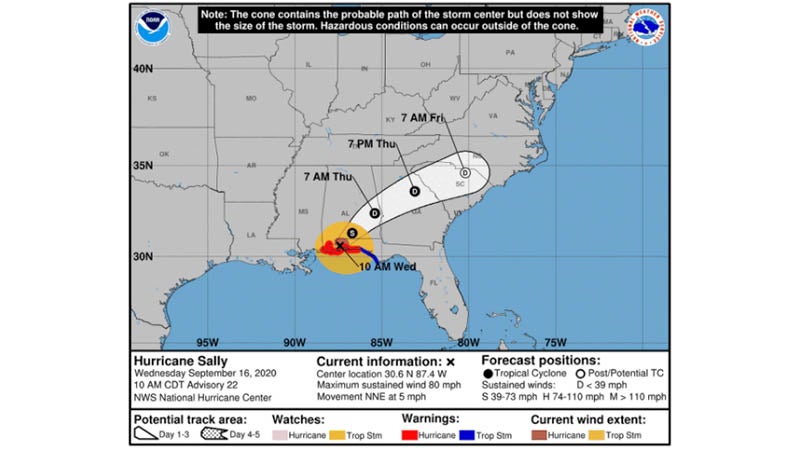State law could clear records
Published 12:00 am Wednesday, July 30, 2014
As of July 7, a new law in Alabama gives some people who have been arrested, but not convicted, the right to have their records expunged. Tuesday, Covington County officials weighed in on the new law and everything that comes with it.
Covington County District Attorney Walt Merrell said he feels the change is for the better.
“I think it’s a good thing,” Merrell said. “I had a fella call me recently about one of his employees that was arrested for a theft and he was no billed by a grand jury. The guy was wanting to kind of grow in his professional career but that arrest was holding him back. So this gives that guy an opportunity to get that arrest off his background check.”
Andalusia attorney John Peek, who represents Covington County on the Alabama Bar Commission, also called the new law a step in the right direction, but both men said people need to be aware of what the law does not do.
“The unavailability of expungement has been a shortcoming in our system relative to other states where expungement has been available for a long time,” Peek said. “However, in 24 years of practice I have been asked about expungement infrequently; most of those inquiries were by residents of other states, and most of those think expungement is a way to wipe out a conviction.”
Merrell said it is important that people realize the law only applies to those who have been acquitted of a non-violent felony offense; have been no billed by a grand jury; have had charges dismissed with prejudice; have had charges dismissed after successful completion of a court-ordered program; have had charges dismissed without prejudice more than five years ago, have not been refiled and the person has not been convicted of any other felony or misdemeanor crime, violation or traffic violation – excluding minor traffic violations – during those five years; or 90 days have passed from the date of dismissal with prejudice, no-bill acquittal or nolle prosequi (unwilling to pursue charges) and the charges have not been refiled.
“I certainly see how it’s going to help people,” Merrell said. “Is it going to help a wide cross section of the population that’s been in front of the court system? No, it’s not. You’re talking about a small percentage. Probably less than 5 percent of the people that have been in court are eligible for this. But to those 5 percent, I’m sure it will be important.”
Peek also said he expects most people who look into the new law will likely not be eligible for expungement, or simply won’t be able to afford it.
“Given the attention (it) is getting now, I would expect a large number of people to seek advice on whether they qualify for expungement,” he said. “Unfortunately, this particular expungement procedure is not likely to be undertaken by many of those. There is a hefty expense involved, and the exceptions to availability narrow the application of expungement significantly.”
The price for the legal action has been set at $300, not including other legal fees that may or may not apply.
“Whether the administrative filing fee is ‘fair’ or not probably depends on your perspective,” Peek said. “For someone who desperately needs an arrest removed from their record, particularly for employment purposes, that person would probably be grateful that the procedure exists, even at that cost. My concern is that, generally, the expungement procedure is available to those found not guilty of crimes, not indicted or whose charges were dismissed, among other things. Some would argue that such a person should not have to pay for expungement and also that the procedure should be as simple as possible so that legal fees might be reduced or eliminated. The procedure is not simple, so an attorney will almost always have to be involved.”
As for who is eligible, the guidelines leave out people charged, but not convicted of a violent felony offense.
“I think there’s some wisdom to that,” Merrell said. “Let’s say you have a rape of a 12-year-old girl and the reason that (the suspect is) acquitted is because, at trial, she’s too scared to testify. It’s just another kind of safeguard, if you will.”




